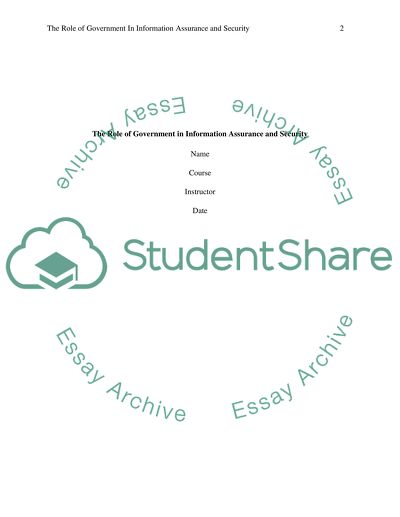Cite this document
(“The role of Government in the Information Assurance and Security Research Paper”, n.d.)
The role of Government in the Information Assurance and Security Research Paper. Retrieved from https://studentshare.org/information-technology/1482370-the-role-of-government-in-the-information
The role of Government in the Information Assurance and Security Research Paper. Retrieved from https://studentshare.org/information-technology/1482370-the-role-of-government-in-the-information
(The Role of Government in the Information Assurance and Security Research Paper)
The Role of Government in the Information Assurance and Security Research Paper. https://studentshare.org/information-technology/1482370-the-role-of-government-in-the-information.
The Role of Government in the Information Assurance and Security Research Paper. https://studentshare.org/information-technology/1482370-the-role-of-government-in-the-information.
“The Role of Government in the Information Assurance and Security Research Paper”, n.d. https://studentshare.org/information-technology/1482370-the-role-of-government-in-the-information.


